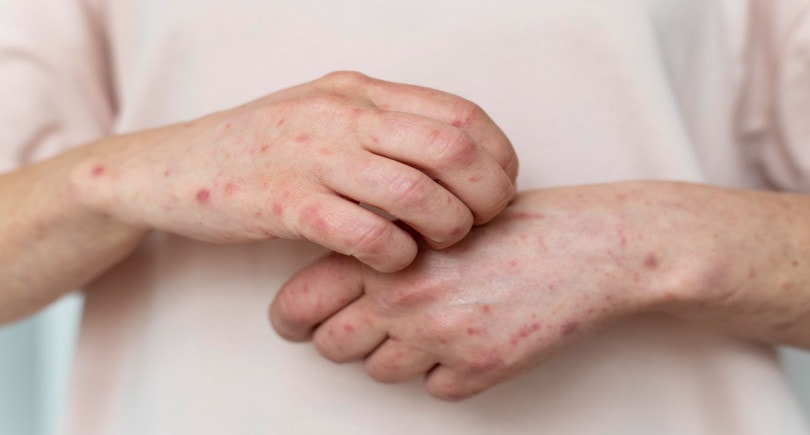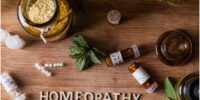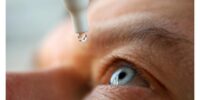How To Use Homeopathy For Skin Conditions And Dermatological Issues?

Homeopathy is a holistic approach to healthcare that aims to treat the root cause of ailments rather than just the symptoms. It is gaining popularity as an alternative treatment for various skin conditions and dermatological issues.
This article explores the principles of homeopathy for skin conditions, common remedies used, the importance of consulting with a homeopathic practitioner, and the proper application of remedies.
It also discusses lifestyle and dietary recommendations for healthy skin, as well as the management of acute and chronic skin conditions using homeopathy. Safety precautions and success stories are also addressed.
By understanding how homeopathy can be utilized for skin problems, individuals can make informed decisions about incorporating this approach into their skincare routines.
Key Takeaways
- Homeopathy is a holistic approach that treats the root cause of skin conditions and is gaining popularity as an alternative treatment.
- Remedies are highly diluted and stimulate the body’s natural healing response.
- Lifestyle and dietary changes, such as staying hydrated and eating a balanced diet, play a crucial role in maintaining healthy skin.
- Collaboration between homeopathic practitioners and dermatologists can lead to a more comprehensive approach in managing chronic skin conditions.
Principles of Homeopathy for Skin Conditions
The principles of homeopathy for skin conditions emphasize the fundamental concept of ‘like cures like,’ in which a substance that can cause symptoms in a healthy individual is used in a highly diluted form to stimulate the body’s natural healing response for those same symptoms.
This principle is based on the belief that a substance that produces symptoms similar to those experienced by a patient can trigger the body’s inherent ability to heal itself. Homeopathy practitioners consider the patient’s specific symptoms, as well as their overall physical and mental state, when selecting the appropriate remedy.
These remedies are diluted to such an extent that they often contain little or no trace of the original substance. The diluted remedy is then administered to the patient to stimulate their vital force and promote healing.
However, it is important to note that the principles of homeopathy for skin conditions are not universally accepted in the scientific community, and more research is needed to fully understand its effectiveness.
Common Homeopathic Remedies for Skin Conditions
Commonly used remedies in homeopathy for various skin conditions include Sulphur, Graphites, and Arsenicum album.
Sulphur is often used for itchy and burning skin conditions, such as eczema and psoriasis. It is believed to help stimulate the body’s natural healing processes and reduce inflammation.
Graphites is commonly used for dry and rough skin, as well as skin conditions that worsen in cold weather. This remedy is thought to promote skin hydration and improve skin elasticity.
Arsenicum album is frequently used for skin conditions that cause burning, itching, and restlessness. It is believed to have antiseptic properties and can help relieve symptoms associated with allergic reactions and skin infections.
These remedies are selected based on the individual’s specific symptoms and are used in highly diluted forms to stimulate the body’s self-healing abilities.
Consultation with a Homeopathic Practitioner
Consultation with a homeopathic practitioner plays a vital role in identifying personalized treatments for various skin ailments, ensuring that the individual’s specific symptoms are considered and addressed. During the consultation, the practitioner conducts a detailed examination of the patient’s medical history, lifestyle, and emotional well-being to obtain a comprehensive understanding of the underlying causes of the skin condition. This holistic approach allows the practitioner to develop a personalized treatment plan that targets the root cause rather than just the symptoms.
To illustrate the complexity of homeopathic treatments for skin conditions, a table is presented below, showcasing commonly used remedies and their specific indications:
| Remedy | Indications |
|---|---|
| Sulphur | Dry, itchy, and burning skin; worsened by heat |
| Graphites | Cracked, oozing, and moist skin |
| Rhus toxicodendron | Red, swollen, and blistering skin; relieved by warmth |
| Arsenicum album | Dry, scaly, and burning skin; worsened at night |
| Natrum muriaticum | Dry, cracked, and rough skin; worsened by sunlight |
By incorporating individualized consultations and targeted remedies, homeopathic practitioners strive to provide comprehensive and personalized care for individuals with skin conditions.
Proper Application of Homeopathic Remedies
Applying homeopathic remedies correctly is crucial for achieving optimal results in treating various skin ailments, as it ensures the targeted remedy is used in a manner that addresses the underlying causes of the condition.
To properly apply homeopathic remedies for skin conditions, it is important to follow the instructions provided by a qualified homeopathic practitioner. These remedies are typically administered orally or topically, depending on the specific condition being treated.
Oral administration involves taking the remedy in the form of pellets, tablets, or liquid drops, while topical application involves applying creams, ointments, or gels directly to the affected area.
It is essential to strictly adhere to the prescribed dosage and frequency of administration to avoid any adverse effects. Additionally, it is advisable to consult with a homeopathic practitioner before self-administering any remedies to ensure proper application and avoid any potential complications.
Lifestyle and Dietary Recommendations for Healthy Skin
Promoting a healthy lifestyle and making dietary adjustments can significantly contribute to achieving and maintaining clear and radiant skin. Here are some lifestyle and dietary recommendations for healthy skin:
- Stay hydrated: Drinking an adequate amount of water helps to flush out toxins from the body and keeps the skin hydrated.
- Eat a balanced diet: Incorporate plenty of fruits, vegetables, and whole grains into your meals. These foods are rich in antioxidants, vitamins, and minerals that promote skin health.
- Limit processed foods and sugar: Consuming excessive amounts of processed foods and sugar can lead to inflammation and acne breakouts.
- Avoid smoking and excessive alcohol consumption: Smoking and excessive alcohol intake can damage the skin and accelerate the aging process.
- Protect your skin from the sun: Apply sunscreen, wear protective clothing, and seek shade to protect your skin from harmful UV rays.
By following these lifestyle and dietary recommendations, individuals can support their homeopathic treatments for skin conditions and enhance overall skin health.
Managing Acute Skin Conditions with Homeopathy
Managing acute skin conditions can be approached through the use of homeopathic remedies, which have been found to provide relief and support the healing process. Homeopathy employs the principle of ‘like cures like,’ where a substance that can cause symptoms in a healthy person is used in a highly diluted form to treat similar symptoms in an individual with a skin condition.
Remedies are selected based on the specific symptoms and characteristics of the condition, such as itching, burning, or inflammation. Homeopathic remedies for acute skin conditions may include Apis mellifera, which is used for redness, swelling, and stinging sensations, or Rhus toxicodendron, which is indicated for itching, blisters, and rashes.
These remedies are available in various potencies and are typically taken orally or applied topically, depending on the specific condition. It is important to consult with a qualified homeopath or healthcare professional before using homeopathy for acute skin conditions to ensure proper diagnosis and treatment.
Long-Term Management of Chronic Skin Conditions
Addressing the ongoing challenges of chronic skin conditions necessitates a comprehensive, long-term management strategy that encompasses various therapeutic approaches and emphasizes the importance of regular monitoring and treatment adjustments.
To effectively manage chronic skin conditions, homeopathy offers a holistic and individualized approach. Here are four key aspects of long-term management in homeopathy:
- Constitutional Treatment: Homeopathic practitioners prescribe remedies based on the individual’s overall constitution, taking into account their physical, mental, and emotional symptoms. This personalized approach aims to address the underlying imbalances contributing to the chronic skin condition.
- Follow-up Consultations: Regular follow-up consultations allow the homeopath to assess the progress and make necessary adjustments to the treatment plan. This ongoing monitoring ensures that the remedies are tailored to the changing needs of the individual.
- Lifestyle Modifications: Homeopathy emphasizes the importance of adopting a healthy lifestyle to support the body’s natural healing processes. This may include making dietary changes, managing stress levels, and incorporating exercise and relaxation techniques.
- Integration with Conventional Medicine: In some cases, homeopathy can be used alongside conventional medicine to complement and enhance its effects. Collaboration between homeopathic practitioners and dermatologists can lead to a more comprehensive and integrated approach to managing chronic skin conditions.
By implementing these strategies, homeopathy aims to provide long-term relief and improve the overall well-being of individuals with chronic skin conditions.
Safety and Precautions in Using Homeopathy for Skin Issues
When it comes to managing chronic skin conditions, long-term management is crucial. However, before delving into the various approaches, it is important to consider the safety and precautions associated with using homeopathy for skin issues.
Homeopathy is a holistic system of medicine that aims to stimulate the body’s innate healing abilities. While it is generally considered safe, there are a few important precautions to keep in mind.
Firstly, it is essential to consult with a qualified homeopathic practitioner who can provide individualized treatment based on the specific skin condition. Additionally, it is crucial to inform the practitioner about any existing medical conditions or medications being taken.
This is important as homeopathic remedies may interact with certain medications or exacerbate certain conditions. By taking these precautions, individuals can safely explore the potential benefits of homeopathy in managing their skin conditions.
Success Stories and Testimonials
This section will focus on success stories and testimonials related to the use of homeopathy for skin issues. Real-life experiences with homeopathy will be discussed, highlighting the before and after photos that showcase the transformation of individuals’ skin conditions.
Inspiring stories of how homeopathy has helped individuals overcome dermatological issues will also be presented, providing evidence of the effectiveness of this alternative treatment approach.
Real-Life Experiences with Homeopathy
Experiences of individuals who have used homeopathy for various skin conditions and dermatological issues shed light on the potential efficacy of this alternative treatment approach. Real-life accounts provide valuable insights into the effectiveness of homeopathy in managing skin ailments.
Many individuals report positive outcomes, such as improvements in acne, eczema, psoriasis, and various allergic reactions. These individuals often express satisfaction with the holistic nature of homeopathic treatments, which take into consideration the individual’s overall health and well-being. Some attribute their success to the personalized and individualized treatment plans offered by homeopathic practitioners.
However, it is important to note that anecdotal evidence should be interpreted with caution, as it may be influenced by a placebo effect or other factors. Further research is needed to establish the scientific validity of homeopathy for skin conditions and dermatological issues.
Before and After Photos
Transitioning from real-life experiences with homeopathy, we now turn our attention to the use of before and after photos in assessing the efficacy of homeopathic treatments for skin conditions and dermatological issues. Before and after photos serve as visual evidence of the improvements experienced by individuals who have undergone homeopathic treatment.
These photos provide a tangible representation of the changes in the skin’s appearance, such as reduced redness, improved texture, and diminished lesions or scars. By objectively comparing the visual outcomes, before and after photos can help both patients and practitioners evaluate the effectiveness of homeopathy in treating various skin ailments.
However, it is important to note that while these photos can be compelling, they should be used in conjunction with other forms of evidence, such as clinical trials, to draw comprehensive conclusions about the benefits of homeopathy in dermatology.
Inspiring Stories of Skin Transformation
The remarkable accounts of individuals who have witnessed significant improvements in their skin’s condition after undergoing alternative treatments are both captivating and inspiring. These inspiring stories provide anecdotal evidence of the potential benefits of homeopathy for various skin conditions and dermatological issues. They demonstrate the positive impact that alternative treatments can have on individuals’ lives, offering hope and encouragement to those who may be struggling with their own skin concerns.
- One individual reported a dramatic reduction in acne breakouts after using homeopathic remedies, with their skin becoming clearer and smoother than ever before.
- Another person shared their experience of using homeopathy to treat eczema, describing how their persistent itching and inflammation subsided, allowing their skin to heal and regain its natural appearance.
- A third individual detailed their successful journey in treating psoriasis with homeopathic remedies, experiencing a significant reduction in redness, scaling, and discomfort.
These inspiring stories serve as a reminder of the potential efficacy of homeopathy in addressing various skin conditions, encouraging further exploration and research in this field.
Frequently Asked Questions
Can homeopathy cure all types of skin conditions?
Homeopathy cannot cure all types of skin conditions. While some individuals may experience symptom relief with homeopathic treatments, the scientific evidence supporting its effectiveness is limited and inconsistent. Consulting a dermatologist is recommended for proper diagnosis and treatment.
Are homeopathic remedies safe to use on children?
Homeopathic remedies are generally considered safe for use on children. However, it is important to consult with a qualified homeopath or healthcare professional to ensure the appropriate remedy and dosage for the specific skin condition or dermatological issue.
How long does it usually take to see results when using homeopathy for skin conditions?
The duration of time required to observe results when employing homeopathy for skin conditions varies and is influenced by several factors such as the severity of the condition, individual response, and adherence to the treatment plan.
Can homeopathy be used as a standalone treatment or should it be combined with conventional medicine?
Homeopathy can be used as a standalone treatment for skin conditions and dermatological issues. However, it is often recommended to combine it with conventional medicine for optimal results.
Are there any side effects or interactions to be aware of when using homeopathic remedies for skin issues?
When using homeopathic remedies for skin issues, it is important to be aware of potential side effects and interactions. Some individuals may experience temporary aggravation of symptoms or allergic reactions. It is recommended to consult with a healthcare professional before using homeopathic remedies.









